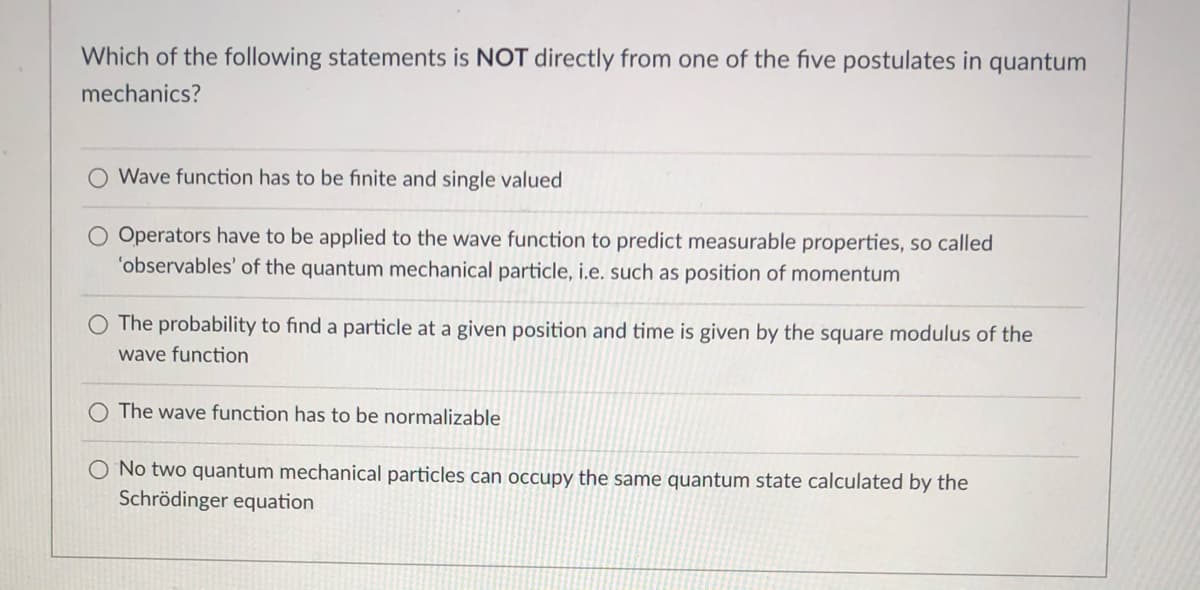Which of the following statements is NOT directly from one of the five postulates in quantum mechanics? Wave function has to be finite and single valued Operators have to be applied to the wave function to predict measurable properties, so called 'observables' of the quantum mechanical particle, i.e. such as position of momentum The probability to find a particle at a given position and time is given by the square modulus of the wave function The wave function has to be normalizable O No two quantum mechanical particles can occupy the same quantum state calculated by the Schrödinger equation
Which of the following statements is NOT directly from one of the five postulates in quantum mechanics? Wave function has to be finite and single valued Operators have to be applied to the wave function to predict measurable properties, so called 'observables' of the quantum mechanical particle, i.e. such as position of momentum The probability to find a particle at a given position and time is given by the square modulus of the wave function The wave function has to be normalizable O No two quantum mechanical particles can occupy the same quantum state calculated by the Schrödinger equation
Related questions
Question

Transcribed Image Text:Which of the following statements is NOT directly from one of the five postulates in quantum
mechanics?
Wave function has to be finite and single valued
O Operators have to be applied to the wave function to predict measurable properties, so called
'observables' of the quantum mechanical particle, i.e. such as position of momentum
The probability to find a particle at a given position and time is given by the square modulus of the
wave function
O The wave function has to be normalizable
O No two quantum mechanical particles can occupy the same quantum state calculated by the
Schrödinger equation
Expert Solution
This question has been solved!
Explore an expertly crafted, step-by-step solution for a thorough understanding of key concepts.
Step by step
Solved in 2 steps
